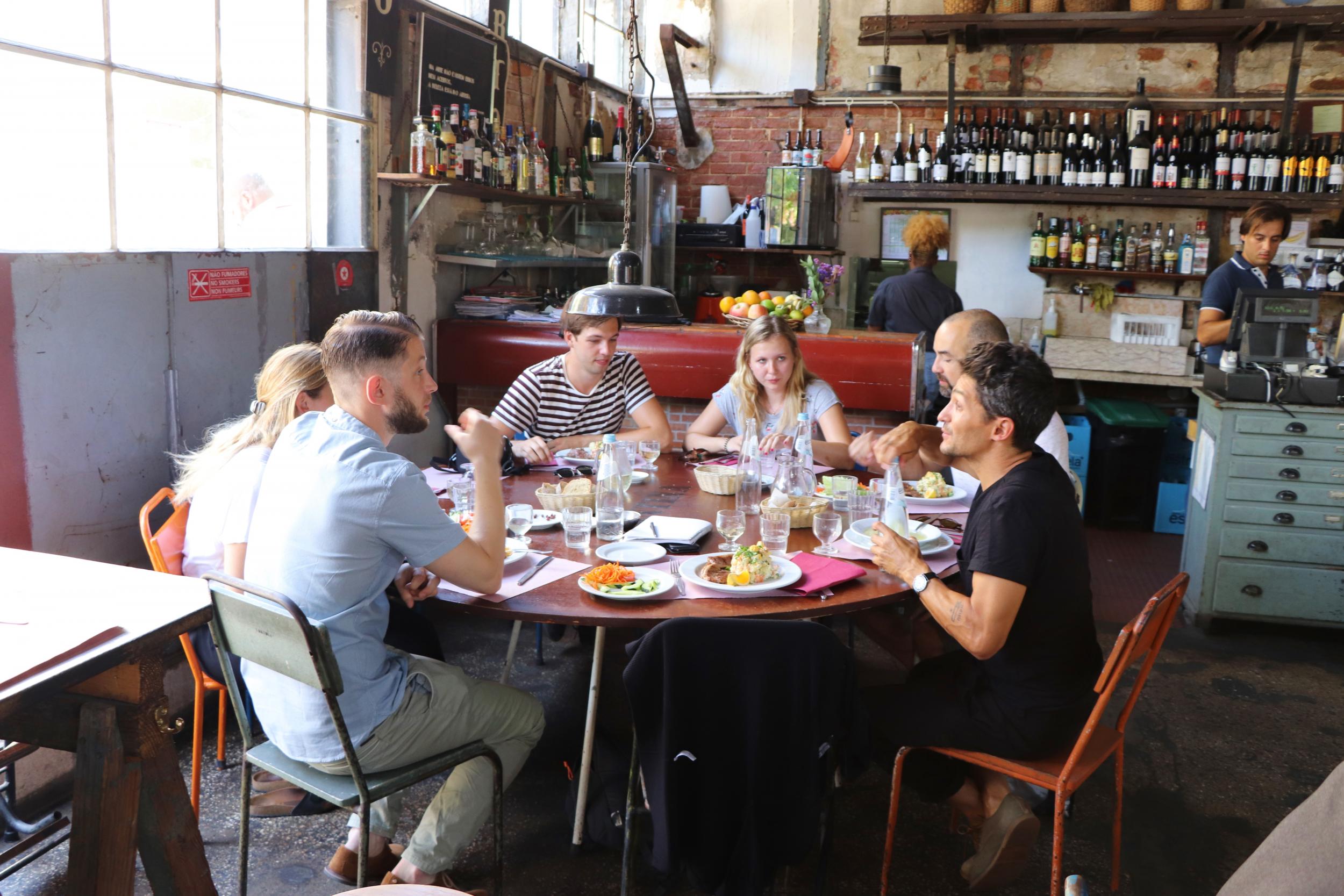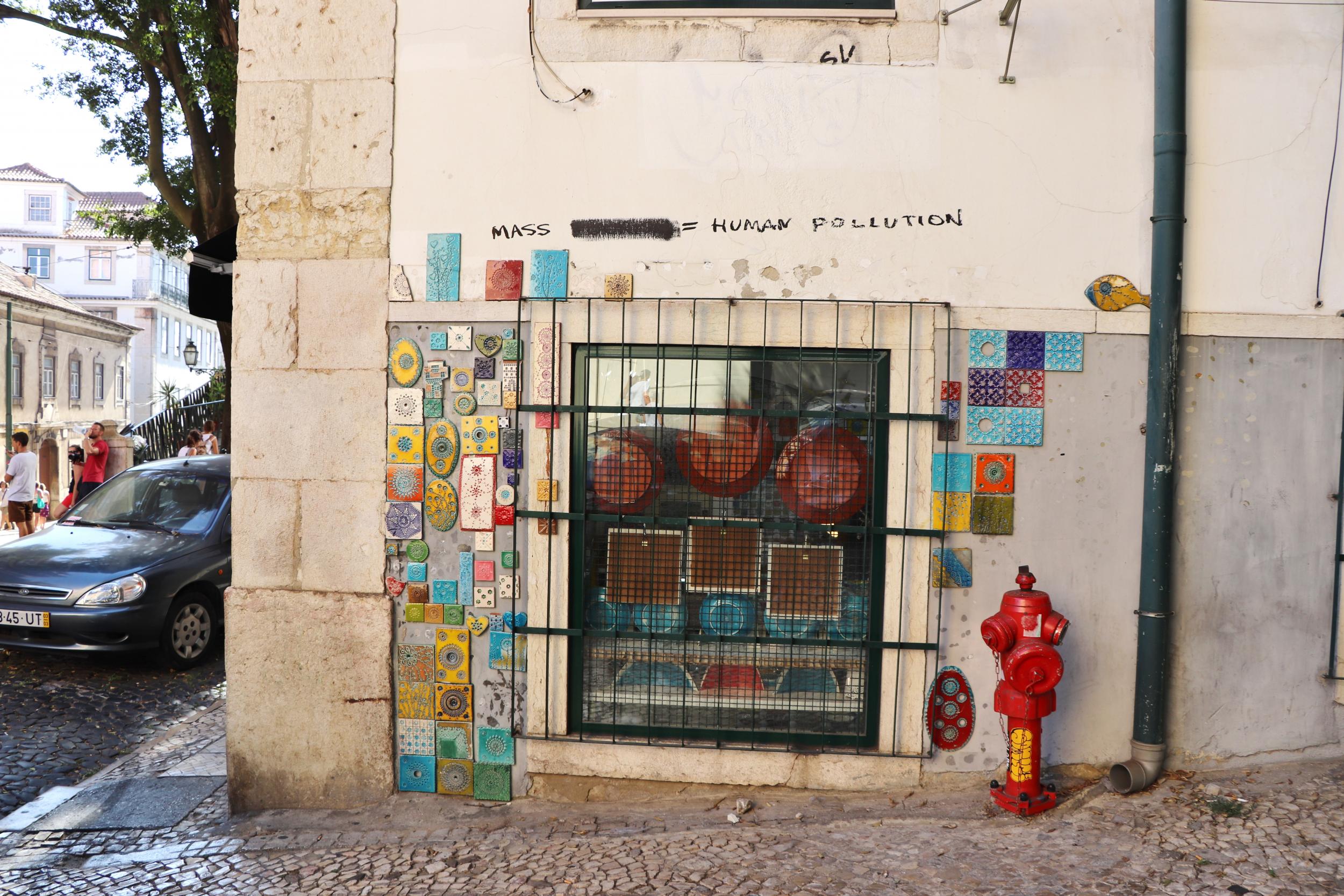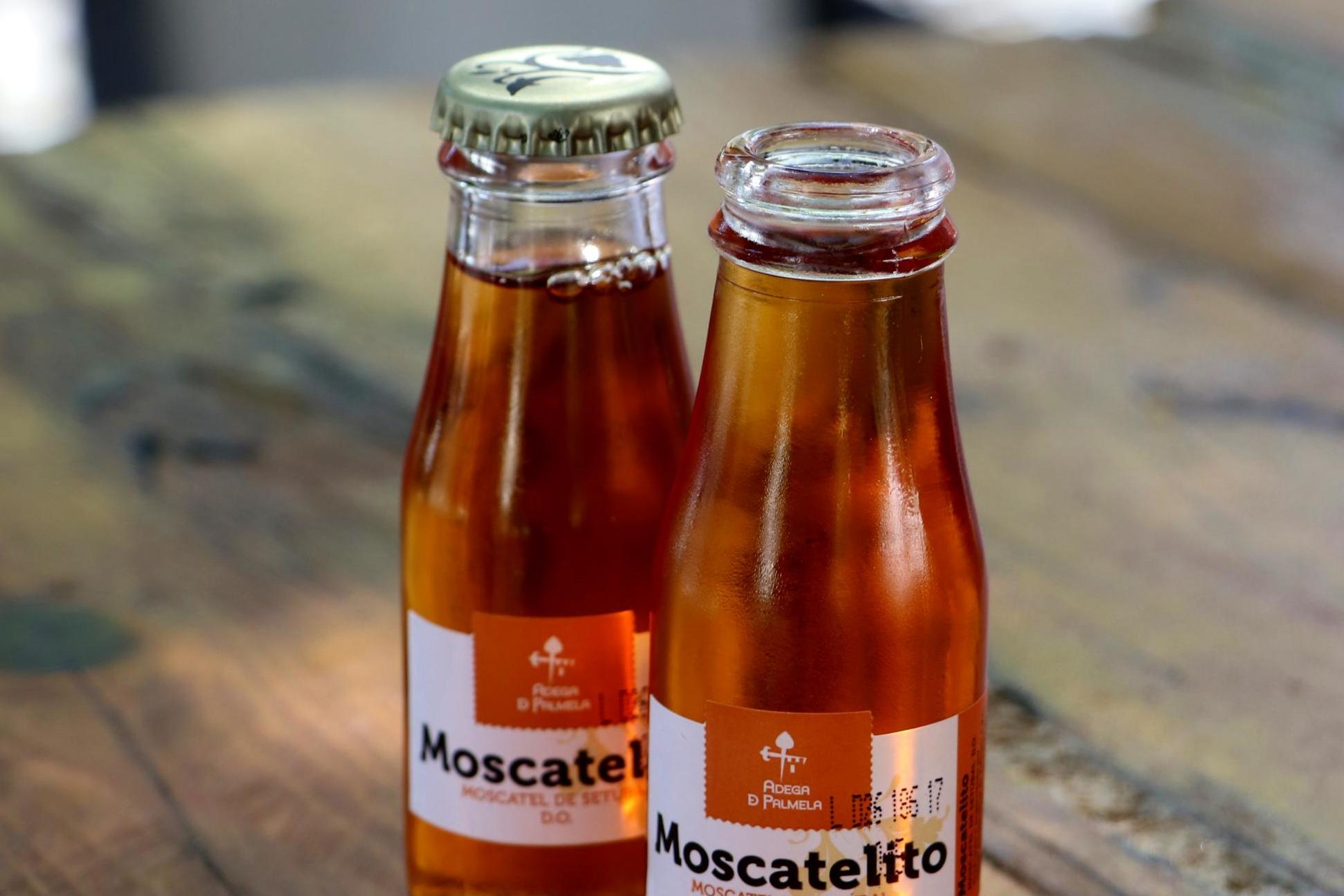Lisbon’s ‘We Hate Tourism’ tours teach visitors how to travel responsibly
As the backlash against mass tourism in some European cities continues, a company in the Portuguese capital is teaching visitors how to appreciate its city in a responsible way

“I have a little surprise,” says Pedro, reaching into his bag and taking out tiny bottles of Moscatelito, a sweet fortified wine, for each of us. As we stand under the shade of a tree, Pedro tells us about what we’re sipping, and about the area we are in.
This is the “Lunch In Our Home” experience with We Hate Tourism in Lisbon. The idea is to eat with locals, to have a real experience of Portuguese culture and enjoy the food and wine, rather than seeing the city through mass tourism.

The “home” in question is not someone’s living room – it’s LX Factory in the Alcântara area under the 25th April Bridge. The former fabrics factory was abandoned for years, but after the 2008 economic crash, cheap rents and large spaces attracted studios, cafés and restaurants, as well as creative companies like We Hate Tourism.
There are seven of us – myself, a couple from Germany and one from the Netherlands, all in their twenties, plus Pedro and We Hate Tourism founder Bruno Gomes. We move indoors to Cantina, an industrial-type space which was once the factory canteen, and sit at a large round table. Furniture is mismatched and walls are filled with a fun mix of art, old signs and industrial equipment.
Bruno pours “green wine” – a young sparkling wine – from jugs as we browse the menu. “The tour has no direction, we have the freedom of being ourselves and we welcome people who want to share time with us,” he says. Bruno founded We Hate Tourism after the 2008 crash, with the idea of sharing his love and knowledge of the city with like-minded travellers, letting people get to know Lisbon by meeting locals.
Our conversation turns to recent protests against mass tourism – particularly prominent in Barcelona and Venice – and how people seem to stomp through a city on tours, ignoring the local community. “We don’t like to point fingers,” says Bruno. “I am not against tourists or saying tour buses are bad, but we need to change. We need to be conscious of how we travel and who we are as travellers. It’s a challenge for many cities.”
After lunch, Bruno shows me places he loves that don’t attract the traditional bus tours. We drive past the crowded Belém area, where the queue outside the famous Pasteis de Belém bakery stretches along the pavement. There are more queues at Jerónimos Monastery. “I think waiting an hour in line is awful,” says Bruno. “We come here at night, to see how beautiful the buildings are but without all the tourists.”
We turn up a hill and are soon at a small chapel. “This to me is the most important place to understand Portugal and the Discoveries,” says Bruno. The Restelo Hermitage is where Vasco de Gama and his men spent their last night before setting off for the Orient in 1497. We are the only visitors and the car park is empty. Down towards the sea, we can see the Torre de Belém and its crowds. When I ask Bruno why everyone is down there and not up here, he says: “We only see what they want us to see. If we want to travel, we need to dig a little deeper.”

Bruno was working as a graphic designer before the crash; Pedro was a photographer. “We are the ‘sons of the crisis’. We have a journalist, an engineer and a psychologist,” he says. “We were unemployed or quit because we didn’t want to get exploited.” The We Hate Tourism team regard themselves as unofficial ambassadors to the city – “urban diplomats” who grew up here and use local knowledge to show the real Lisbon to visitors. They show people the city by jeep, or venture further afield to Sintra or the beaches at Cascais. The “Dinner With Us Or Starve” experience is at an authentic Portuguese restaurant followed by a night tour of Belém.
As part of its sustainable tourism ethos, We Hate Tourism uses some of the money from tours to give back to the community – they take children and the elderly out for free tours, they clean streets and neigbourhoods and paint houses.
On the drive, we pass where the city’s new cruise ship terminal is being finished, right in front of the historic Alfama district. When it opens in September, it will be able to take up to eight ships at once – and Bruno worries how these will add to the already overcrowded city. Last year Lisbon had 5.6 million visitors and figures for the first half of this year show visitor numbers are up 12.4 per cent on last year.

At Feira da Ladra (Thieves Market), we have tea at a kiosk in the park, where local men are playing the card game Sueca. Bruno says he runs We Hate Tourism to share the real perspective of what the city is – it’s not about making money. “I like to see us as reporters or the conscience of the city. We are not here to talk bad about anything going on, we are just here to bring some subjects up. This for me is the responsibility we have for the city,” he says.
“We have interesting people who are interested in travelling differently. They want to understand what is going on with the city, what it is to be Portuguese, why we are the way we are. This is what we are interested in sharing with people.”
Unlike the rest of the tourist industry, when he brings people to great places, he instructs them, “Tell your friends and those you love, but please don’t put it on TripAdvisor.” Bruno says it’s not that they don’t want the city to change – he prefers it today than it was 10 years ago – but that change happens in a conscious way and is not about greed. “What I say is, travel responsibly or stay home.”
Travel essentials
We Hate Tourism (wehatetourismtours.com) runs a variety of tours in and around Lisbon. Lunch In Our Home experience costs €30 per person; Dinner With Us Or Starve costs €49 per person.
Join our commenting forum
Join thought-provoking conversations, follow other Independent readers and see their replies
Comments
Bookmark popover
Removed from bookmarks